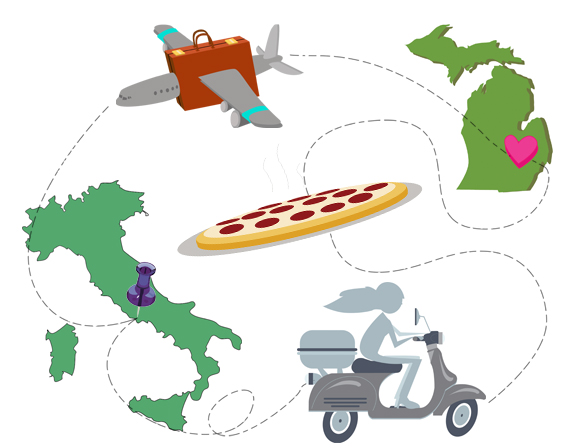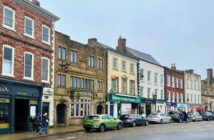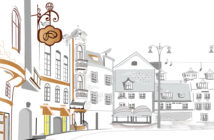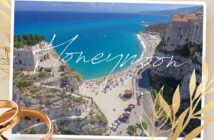When I say “Naples,” the reaction I get is either one of cringing negativity over the Camorra, the Neapolitan arm of the Italian mafia, or delight at the thought of pizza. How does one account for these opposing reactions? The answer isn’t easy, because in Italy, even the simplest things are complicated by layers of culture and history.
After a week of breezy, sun-filled days of local pasta and homemade limoncello in Amalfi this summer, we decided to take the bus to Naples for a little variety in our fairy-tale days. And boy, we got it.
We met up with a friend, an Amalfi local, who had spent the past two years at the University of Naples. So enamored was she with the city that she now viewed herself as a Neapolitan rather than an Amalfitana. Her fierce pride in the city was seductive, and it was difficult not to take in the city the same way she did. She took us down alleys dim with drying laundry and stray cats lounging on beat-up Vespa scooters. She paraded us through crowded market streets bursting with stalls of fresh Mediterranean fruits and vegetables. We walked by shrines of Napoli futbol players who are literally worshipped as saints, and family-owned pizza restaurants with patrons lined up out the door. We savored the sweetness of a Caffe del Nonno, a creamy, iced coffee treat made for summer days. We stared in wonder at the life around us.
Everywhere there was smoke and people shouting or shrieking, laughing and living. The expressions on the faces hurrying by varied from bright smiles to war-weary city veterans. There were homeless people everywhere, but they were so sprightly that it took a moment to realize they were expecting money from us. The differences from street to street were also startling. At one corner, I saw the pristine architectural wonder of a cathedral untouched by time, while at the next street I blinked in bewilderment at what appeared to be a war zone. Graffiti like I’ve never seen and the crumbling sadness of buildings left to neglect: how can these two places be one?
But, through the eyes of my friend, this dirty, loud, post-apocalyptic city was ALIVE. It was beautiful because it breathed and drank and lived on the pride of its inhabitants. The culture of superstition and tradition and its connection to death and God and celebration is all wrapped up in a city of addictive intoxication. Even as I stepped over yet another cigarette butt, feeling myself jostled by another passerby, and straining the limits of my Italian to understand the Neapolitan dialect, I felt drawn to this place. And of course, there was pizza. Like, melt-in-your mouth, food of the gods, ambrosia pizza that changes your life with every mozzarella and tomato bite. As I drank (and ate) in the mystery and adventure of Naples, a strange desire to be a part of this disgusting, lovely city came over me, even though it lacked the lush charm of the Amalfi coast. Naples has made a true convert, and can add to the flock of the faithful another worshipper who can’t get enough of this place.
With a city this divided, different reactions should be expected. But I have fallen in love with its complexity and its people … and I’ll eat pizza with the Camorra any day of the week. ♦
Alexandria Nolan is a misplaced Michigander currently living in the wilds of the Houston urban jungle with her husband and two spoiled pets. She is a published novelist and contributor to various online and print publications, including a lifestyle blog, Greetings from Nolandia. When not writing, she can be found reading or traveling, or reading about traveling.








